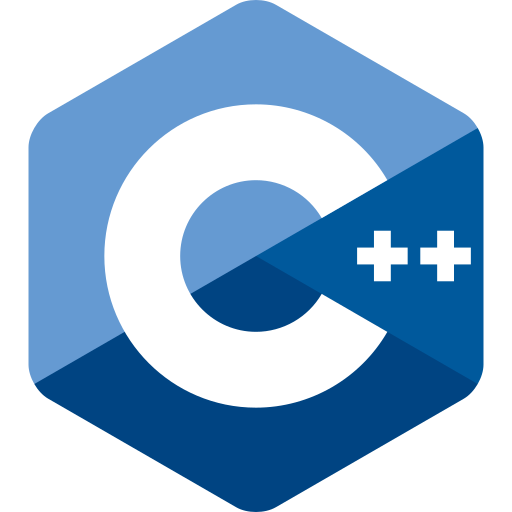C++ is a high-performance programming language that extends the capabilities of C by adding support for object-oriented and generic programming. It is widely used in the development of games, system and embedded software, drivers, and other resource-intensive applications, providing precise control over memory and effective code optimization.

C++ is a programming language widely used to create high-performance applications. It is one of the most popular languages and is used to develop games, system software, drivers, and other demanding applications. In this course, we will start with the basics of C++, learning how to write your first code, work with comments, and the basics of testing programs.
Modern programs are created to serve businesses, help in everyday life and entertainment. But at the heart of their work are still calculations. The simplest and most basic topic in programming is arithmetic. In this module, we will translate arithmetic operations into programming language. Let’s remember school rules from math lessons and talk about the priority of operations.
Text in programming is called “strings”, and this topic is not as simple as it may seem. How to output a phrase that contains both single and double quotes? What to do with text at all, because the computer does not know anything about letters! The module is dedicated to various aspects of writing text – from quotes and escaping to encoding.
Information can be placed in special “storages” – variables. This allows you to reuse existing data and not duplicate it in different parts of the code. In this module, we will look at how to change variables and name them so that your code is understandable for any developer. You will understand that coming up with a name for a variable is not so easy! We will also tell you how to use variables to simplify complex calculations.
C++ is a strongly statically typed language, which means that you must explicitly specify data types when writing code. In this module, we will learn how data types affect code, what types exist, and how to choose and use them for effective programming.
In C++, functions are the basic building blocks that implement the operations and logic of programs. Functions can be either built-in or user-defined. In this module, we will learn how to use both standard functions and create our own. We will also learn the syntax for declaring and calling functions, and get acquainted with the documentation and specification of functions.
Defining your own methods makes writing and maintaining programs much easier. For example, the ability to define methods allows you to combine complex (composite) operations into one – all the complexity can be hidden in one simple method. By learning how to create methods, you will take the first step towards building truly useful programs. And we will help you with this. In this module, you will create your first method and learn how to give it (and variables) understandable names.
Logical expressions allow you to answer questions that arise during the program’s operation. Is the user authenticated? Is the subscription paid? Is this a leap year? In this module, we study predicate functions – those that ask and answer a question – whether it is true or false. We will practice writing such functions and move on to more complex logical expressions.
In C++, predicate functions are used to test conditions and return a Boolean value. However, to perform actions based on these conditions, the `if` and `switch` constructs are used. In this module, we will learn how to use `if` and `switch` to select program behavior based on different conditions, and how these constructs can control the flow of execution and affect program logic.
Any code can be repeated tens, thousands, millions of times. In combination with other tools we know – variables and conditions – this opens up many possibilities for building programs and complex systems. Let’s give a simple example. You need to find a specific phrase in a 500-page textbook. You remember the phrase, but not the page number. The simplest (and longest) way is to sequentially look through the pages until you find the right one. Cycles are needed to perform such repetitive actions.
Phone: +375 33 910-08-92
Email: info@codefor.tech
Address: Baranovichi, st. Pirogova, 7
© 2024-2025 All rights reserved. CodeFor.

Site language: